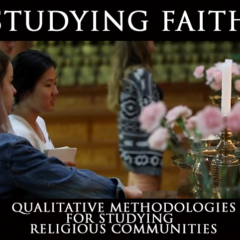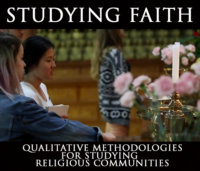Objectivity is the idea that unbiased scientific or social scientific knowledge can be reliably obtained through systematic observations of an external reality. Yet, when we study religious life using qualitative methods of observation and interviews, can we truly understand what religious life means for people objectively without superimposing our own personal feelings, preferences and value judgments?
When we the researchers are the instruments of data collection and analyses, our own biases and positions in a society are inevitably involved in the study. We do not arrive into the field as blank slates. Rather, we take with us certain interpretive systems from our own culture—both its religious and irreligious norms—which can often shape how we explain and interpret other people’s spiritual and religious worlds. We can then fall into the all-too-human tendency to cast our view as the view.
This awareness about the impossibility of “pure” objectivity does not necessarily preclude us as investigators from offering an empirically accurate depiction of the world we study. Indeed, the basic insight we should have in beginning our research is to recognize that while striving for objectivity is extremely important and valuable, compete objectivity is impossible and perhaps not always desirable. Instead, we should strive for using proper methodologies that will help us understand religion in a social context and be reflective about our own biases as social beings. In the next section, we will examine how you can do just that.
Nalika Gajaweera was a senior research analyst with the USC Center for Religion and Civic Culture through 2023.
Andrew Johnson is a contributing fellow with the USC Center for Religion and Civic Culture.

